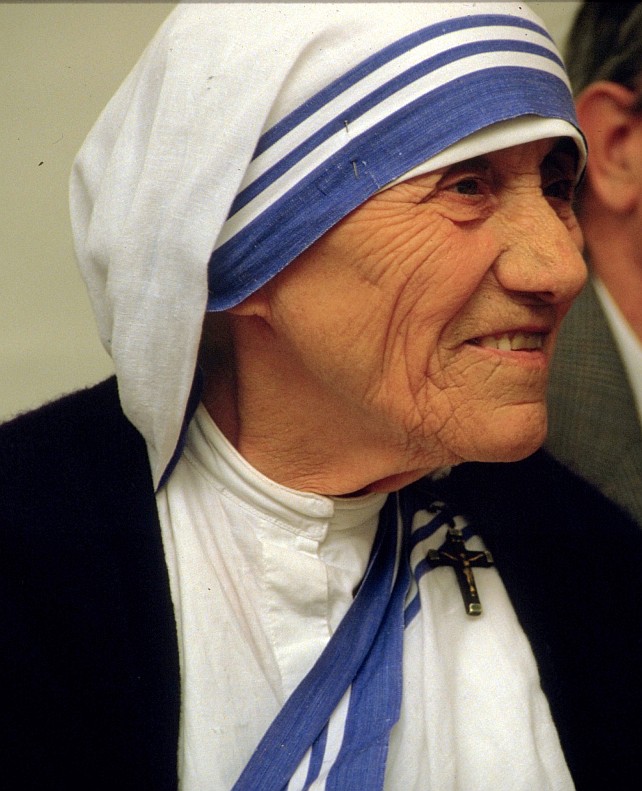Mother Teresa

|
Mother Teresa (August 26, 1910 - September 5, 1997), born Agnesë Gonxhe Bojaxhiu, was an Albanian Roman Catholic nun with Indian citizenship who founded the Missionaries of Charity in Kolkata (Calcutta), India in 1950. For over 45 years she ministered to the poor, sick, orphaned, and dying, while guiding the Missionaries of Charity's expansion, first throughout India and then in other countries. By the 1970s she was internationally famed as a humanitarian and advocate for the poor and helpless, due in part to a documentary, and book, Something Beautiful for God by Malcolm Muggeridge. She won the Nobel Peace Prize in 1979 and India's highest civilian honour, the Bharat Ratna, in 1980 for her humanitarian work. Mother Teresa's Missionaries of Charity continued to expand, and at the time of her death it was operating 610 missions in 123 countries, including hospices and homes for people with HIV/AIDS, leprosy and tuberculosis, soup kitchens, children's and family counselling programs, orphanages, and schools. She has been praised by many individuals, governments and organizations; however, she has also faced a diverse range of criticism. In 1996 Mother Teresa was proclaimed directly by Act of Congress an Honorary Citizen of the United States. Following her death she was beatified by Pope John Paul II and given the title "Blessed Teresa of Calcutta". |
|
Sources for this text: About.com http://history1900s.about.com/cs/motherteresa/ |
Take a minute and think: Why those persons described in the Spiritual and Religious Leaders section were leaders? What were the similarities and differences in their leadership behavior and styles? Find more resources if needed to answer to these questions. Make notes on your personal portfolio.
Licensed under the Creative Commons Attribution Non-commercial No Derivatives 3.0 License
Sirje Virkus, Tallinn University, 2009